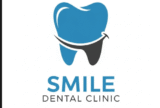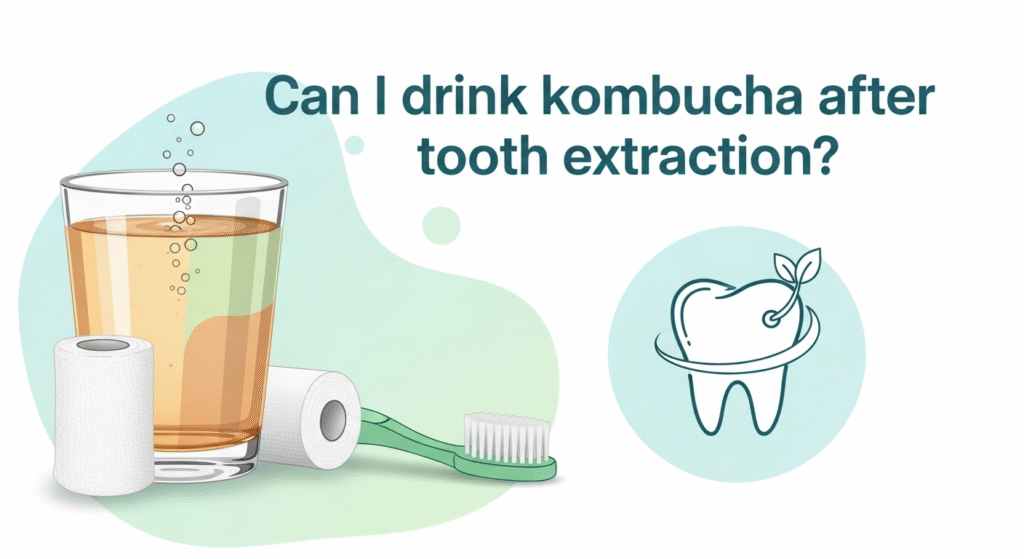Tooth extraction is a common procedure that requires proper aftercare to ensure smooth healing. During the recovery period, it’s important to be mindful of what you consume to avoid complications such as infection or dry socket. If you enjoy kombucha—a popular fermented tea known for its probiotic benefits—you may be wondering, Can I drink kombucha after tooth extraction?
In this article, we will discuss whether it’s safe to drink kombucha after a tooth extraction, the potential risks, and how to make informed choices during your recovery.
Why You Should Be Cautious About Drinking Kombucha After Tooth Extraction
- Acidity of Kombucha
Kombucha is naturally acidic due to the fermentation process. This acidity can irritate your mouth, especially the extraction site, and delay the healing process. It may also cause discomfort or sensitivity in the area of the extraction, which is already healing and vulnerable in the initial stages. - Risk of Dry Socket
Similar to hot beverages like coffee, kombucha can pose a risk of dry socket if consumed too soon after the procedure. Dry socket occurs when the blood clot that forms in the extraction site becomes dislodged, exposing the bone and nerves. Drinking kombucha with a straw or engaging in vigorous sipping can create suction that dislodges the clot and increases the likelihood of this painful condition. - Probiotic Content and Infection
While kombucha contains beneficial probiotics that support gut health, there’s a concern about introducing bacteria into the mouth after a dental procedure. Although kombucha is generally safe for most people, the fermentation process involves bacteria, and introducing any additional bacteria to a healing wound can increase the risk of infection, especially if you don’t follow proper oral hygiene. - Sugar Content
Many commercially available kombuchas contain added sugars. Although the fermentation process reduces the sugar content, residual sugar can still be present. Excess sugar can irritate the mouth, especially around the extraction site, and contribute to infection or inflammation, hindering the healing process.
When Is It Safe to Drink Kombucha After Tooth Extraction?
1. The First 24-48 Hours
During the first 48 hours after your tooth extraction, it’s best to avoid drinking kombucha entirely. The primary focus during this time is allowing the blood clot to form properly and stabilizing the extraction site. Kombucha’s acidity, potential for suction while drinking, and the risk of introducing bacteria can interfere with the healing process. Stick to neutral, soothing liquids like water and mild herbal teas instead.
2. After the Initial Healing Period
After the first few days of healing, when the blood clot has stabilized and the risk of complications like dry socket decreases, you may begin to consider kombucha again. However, it’s important to approach it cautiously:
- Wait for the Healing to Progress: Once the soft tissues around the extraction site begin to heal (typically after 5-7 days), you may be able to introduce kombucha in small amounts.
- Avoid Drinking Through a Straw: As with any beverage, avoid drinking kombucha through a straw, as the suction could dislodge the blood clot or irritate the area.
- Monitor for Discomfort: If you experience any discomfort, sensitivity, or swelling after drinking kombucha, it’s best to stop and wait until your mouth has fully healed.
3. Full Recovery
Once you’ve fully healed, typically after a few weeks, drinking kombucha should not pose any risk to your recovery. By this time, the extraction site will be fully closed, and your gums will have healed enough to handle more acidic or probiotic-rich drinks.
How to Drink Kombucha Safely After Tooth Extraction
If you decide to enjoy kombucha after your tooth extraction, here are some tips to ensure it doesn’t interfere with your recovery:
- Wait Until the Initial Healing Is Complete
Give your mouth at least 5-7 days to heal before reintroducing kombucha into your diet. The longer you wait, the better your chances of avoiding complications. - Choose a Less Acidic Version
Opt for kombucha that’s less acidic or has a lower sugar content. Some kombuchas are flavored with fruit or spices, which may increase the acidity. Choose one that’s gentle on the stomach and less likely to irritate the healing area. - Sip Slowly
When you do drink kombucha, sip it slowly. Don’t gulp it down too quickly, as that could increase the risk of irritation or dislodging the clot. Avoid using a straw to prevent any suction that might affect the healing site. - Maintain Good Oral Hygiene
After drinking kombucha, rinse your mouth with water to help neutralize any acid and wash away any residual sugars or probiotics. Make sure you brush your teeth gently, avoiding the extraction site to prevent irritation. - Monitor for Any Adverse Reactions
Pay close attention to any discomfort or swelling after drinking kombucha. If you experience any issues, discontinue consumption and consult your dentist for advice.
Conclusion
In the immediate aftermath of a tooth extraction, it’s best to avoid kombucha due to its acidity, potential for creating suction, and the possibility of introducing bacteria to the healing area. However, after the initial healing period (typically 5-7 days), you can gradually reintroduce kombucha into your diet, keeping it at a moderate level and following the tips above to ensure it doesn’t interfere with your recovery.
As always, if you have concerns about your healing or specific dietary questions, it’s a good idea to consult with your dentist to make sure you’re on track for a smooth and speedy recovery.

